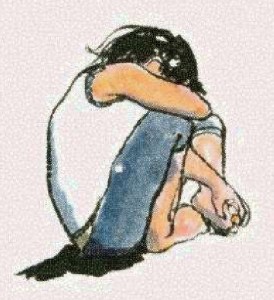sexual assault against women rife in australian psychiatric healthcare system
I am not one for particularly conflated language or hyperbole – but when half the population, of any group of people, is having their life negatively impacted on by an outside entity, which forces its way on or into your person, causing grief, sickness, or even death, that is what we call an epidemic.
The root of the word epi – from Greek – meaning ‘upon, at, close upon’, aptly describes the disturbing situation reported by the Victorian Mental Illness Awareness Council that 45% of the women within the psychiatric healthcare system in Australia are sexually assaulted by other patients or institutional staff while in care. You know, in the safe space they have gone in the hope to be protected. 70 per cent of women who are admitted to psychiatric hospitals have been victims of some form of sexual abuse in their lifetime, so therefore more than half of those women are re-traumatised in care. Not to mention, if those numbers are accurate, that means, that by the time women leave these institutions, it is almost feasible that every single one of them will now have been subjected to some sort of gender based violence. Well, isn’t that enough to make anyone sane feel like they might be crazy?
Does trauma have to happen to everybody to be considered a crisis? What pushes something from being a ‘problem to be addressed’ into ‘crisis’? Is something only considered a crisis when it finds a way to spread to able bodied men, to affect their health, their sanity, their lives? Is sexual violence not as terrifying to policy makers, possibly because they are mostly male and have not had to endure its particular tortures, or perhaps they simply don’t care much for the well being of stigmatised ‘hysterical women’? (Question: why are you in policy making if you don’t really care about the well being of citizens?) Let’s just lock them away and be damned right, they’re already ‘damaged’ – what’s a bit more gonna hurt? Which century is this? How can an epidemic of this magnitude possibly be happening within what is meant to be one of the best healthcare systems in the world?
My questions are furious, and brimming over. I cannot write in the measured, journalistic voice you are taught to adopt to give your arguments a sense of objectivity – no. On a revelation of such grave magnitude I point blank refuse. All that you can offer victims of violence is a sense that what has happened to them is disgusting and unjust – the result of a fundamentally sick culture – and that you will not tolerate it in our shared society. Speaking out is the only way to share that sentiment.
At least VMIAC director Isabell Collins seems to get it:
‘To be quite frank, if this was happening to general patients we would have fixed it immediately.’
Bravo – someone had to say it, let’s all give Isabell a round of applause.
It seems some in our society find it rather difficult to fire up the old mirror neurons when they’re dealing with people they’ve been told have little to no worth to them. Ask anybody who has had to deal even in a minor way with the mental health system, with Centrelink, with drug rehabilitation programs or in trying to protect the rights and health of street workers – good luck getting anywhere – there seems to be very little impetus toward understanding the central problems which create the need for such systems, and even less when it comes to understanding or showing compassion to those who, for whatever reason, need to exist within them.
What is wrong with a government in this supposedly civilised world who will allow its most vulnerable citizens to repeatedly become victims of sexual crime and not be alarmed? Does that not seem sick to you, like there’s something going wrong here? As Foucault asked, ‘is it surprising that prisons resemble factories, schools, barracks, (and) hospitals, which all resemble prisons?’
It would seem not.



Pingback: feminist news round-up 19.05.13 | lip magazine